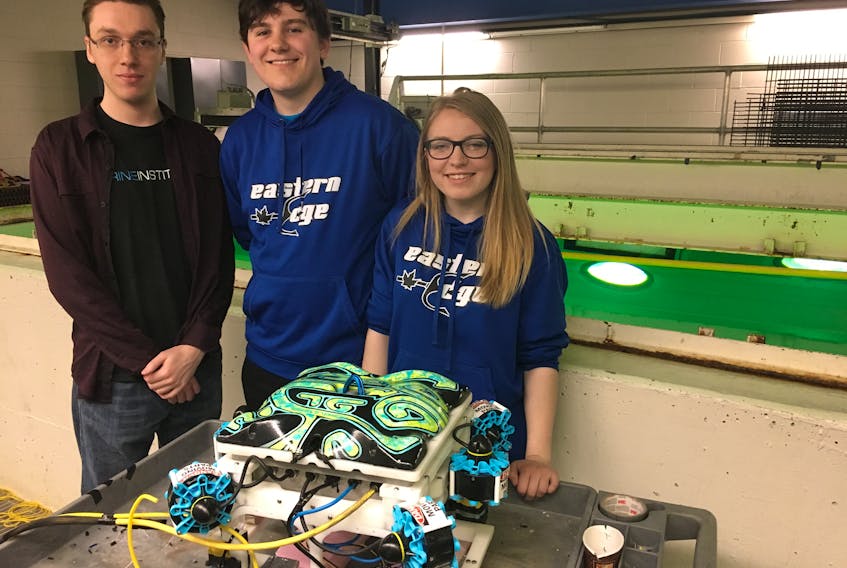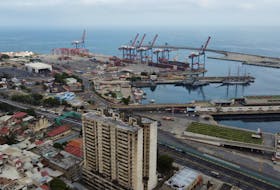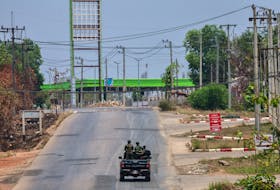A team of students from Memorial University and the Marine Institute are in Washington state looking to claim a fifth overall title at the Marine Advanced Technology Education international ROV competition.
Eastern Edge Robotics won a fourth championship in 2016 in Texas, but finished fifth at last year’s contest in Long Beach, Calif.
But as much as the multi-disciplined squad is there to win, there’s an element of empathy at the core of the competition.
“When we get closer to competition time, we are here so often and get so focused on it, it's all you want to talk about, it's all you're really thinking about for weeks,” says Michaela Barnes, the team’s CEO and an ocean mapping student at the Marine Institute.
“Then you go out there and it's a world of people that all want to talk about the exact same thing that you've been thinking about for weeks and you just really feel for these people because you know that they've also been in their shops for weeks and also been putting in the hours and if something of theirs breaks you want to help them because it's almost like it's your own thing breaking.”
Adds Christian Samson, a bachelor of technology student at the Marine Institute and the pilot for this year’s remotely operated vehicle (ROV) — Florizel, or Flo, for short, “No one wants to see someone else's bot sink, that's the worst feeling.”
The competition is designed for students, but it challenges them to think like a company operating in the ocean technology sector, to help prepare them for someday working in the industry.
“It makes sense, then, that they would want us to do everything ourselves,” says Stephen Chislett, a MUN business student and the team’s accountant and treasurer. “Raise capital, purchase supplies, and build it from scratch because that's what they do in the industry.”
Heading into this year’s event, Barnes says they made more of an effort to infuse their presentation with the entrepreneurial spirit judges are looking for.
“Going into our engineering panel I think we learned a lot from last year,” she says. “Maybe we went a bit too technical in our panel, so we're trying to keep it more of a sales pitch.”
Another lesson from 2017 they’ve applied to this year is the need to simplify the ROV by reducing the number of tools needed to complete the tasks as set out in the contest’s request for proposal (RFP) — which this year includes locating an aircraft and returning its engine to the surface, installing or recovering a seismometer, and installing a tidal turbine and environment monitoring instrumentation.
Whereas previous bots have had five and six tools, Flo has just three.
Samson says having fewer tools makes it easier to learn the mission.
“It's easier to master three tools than six, so by having so few tools I'm able to pick up the mission incredibly quickly and the team understands and were able to put less time in payload and more into our electrical software problems,” explains Samson.
That strategy factors into the business component, Barnes says, as it results in an ROV that’s easier to use and requires far less time spent on training.
In addition to the product demonstration and engineering panel presentation, students must also create a marketing display for their ROV and RFP submission, as well as a 25-page technical document detailing the ROV’s specifications.
The event is being streamed online at marinetech.org/live-videostream/.
Twitter: kennoliver79









